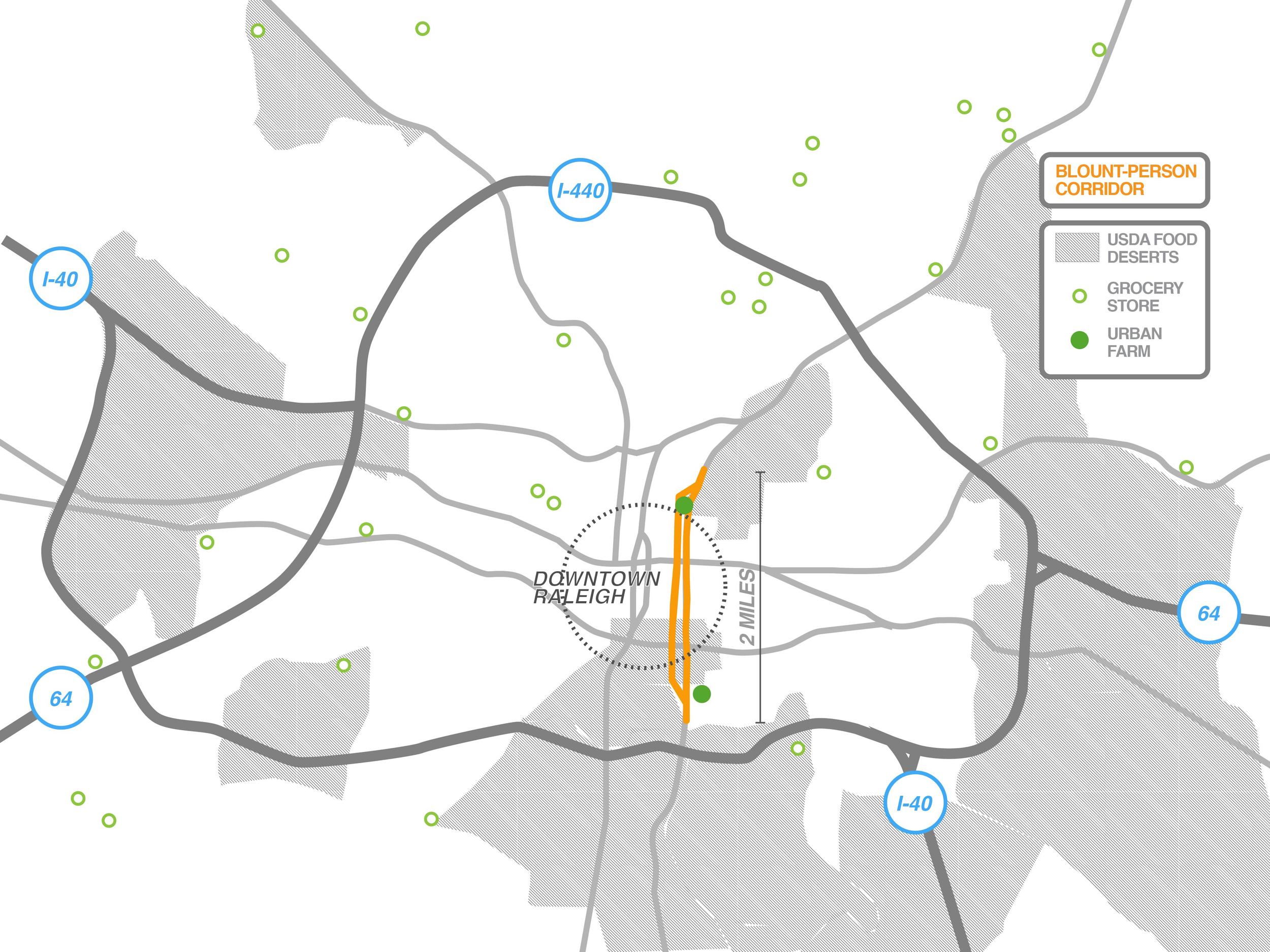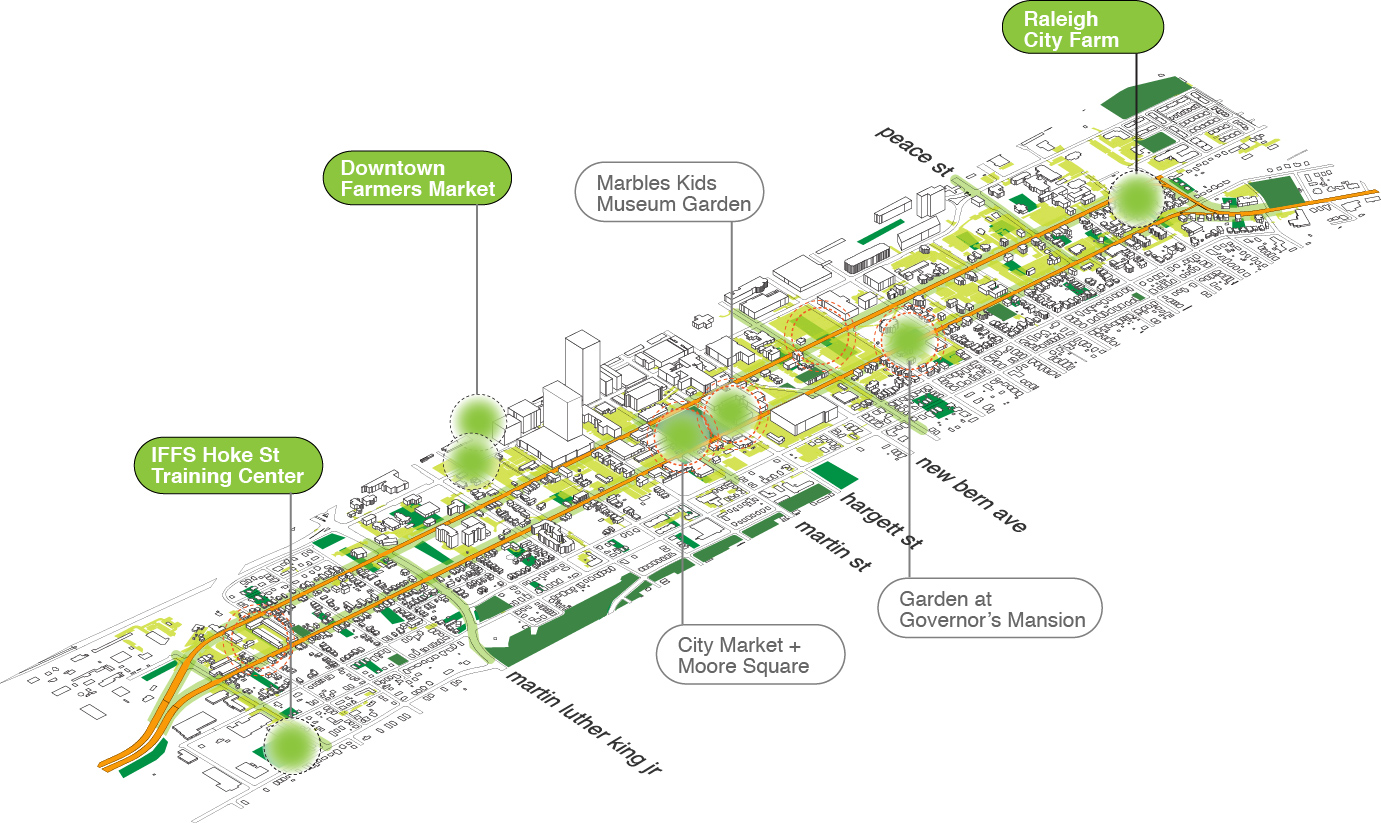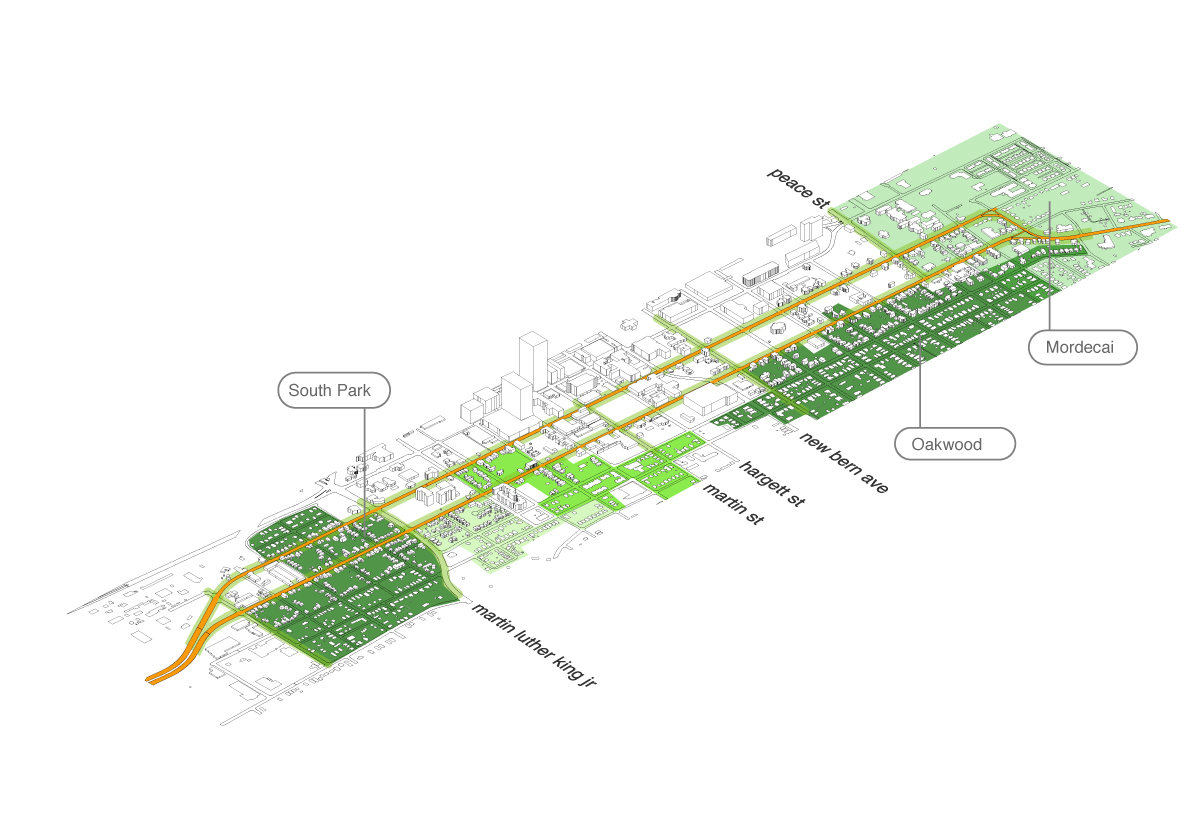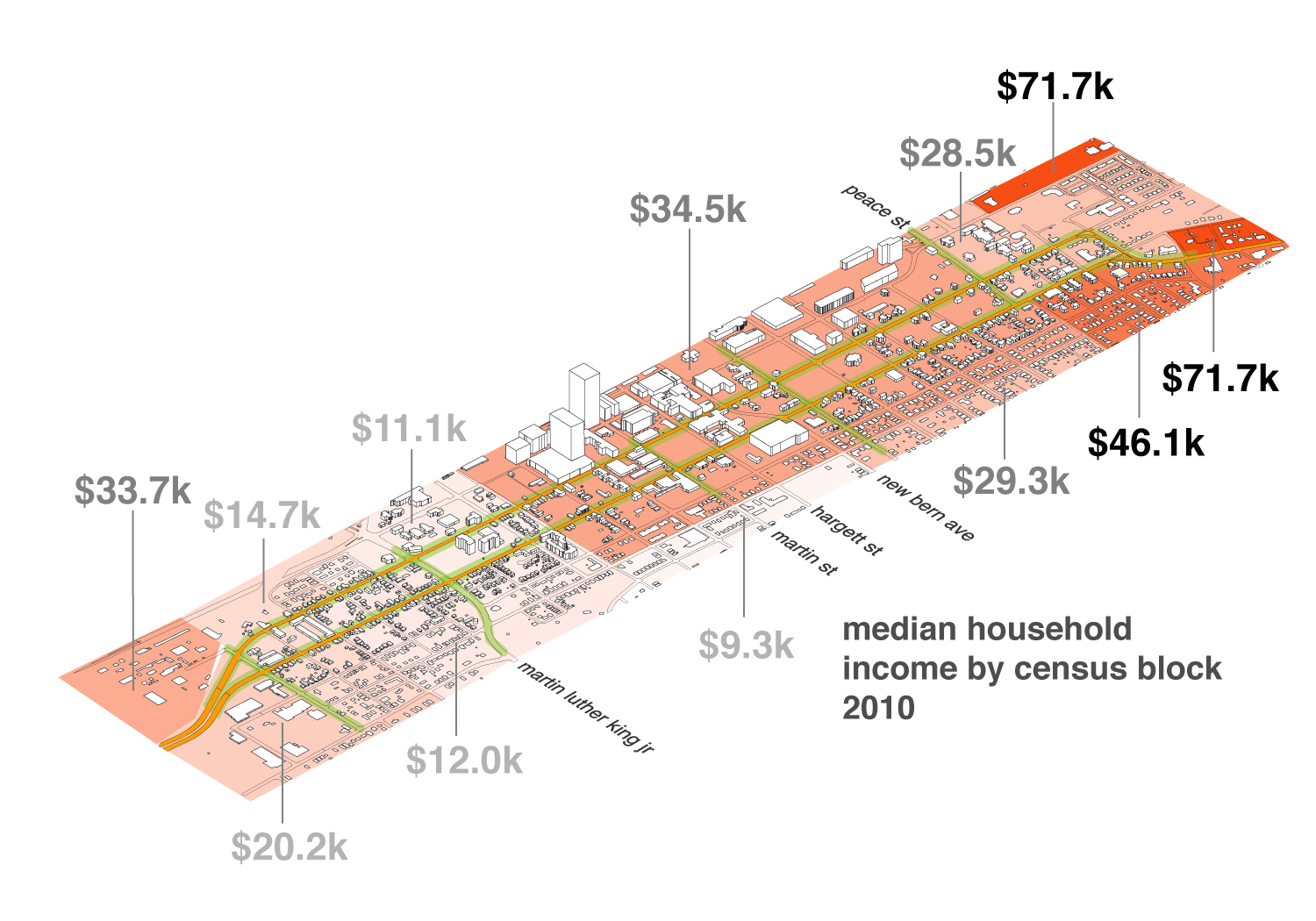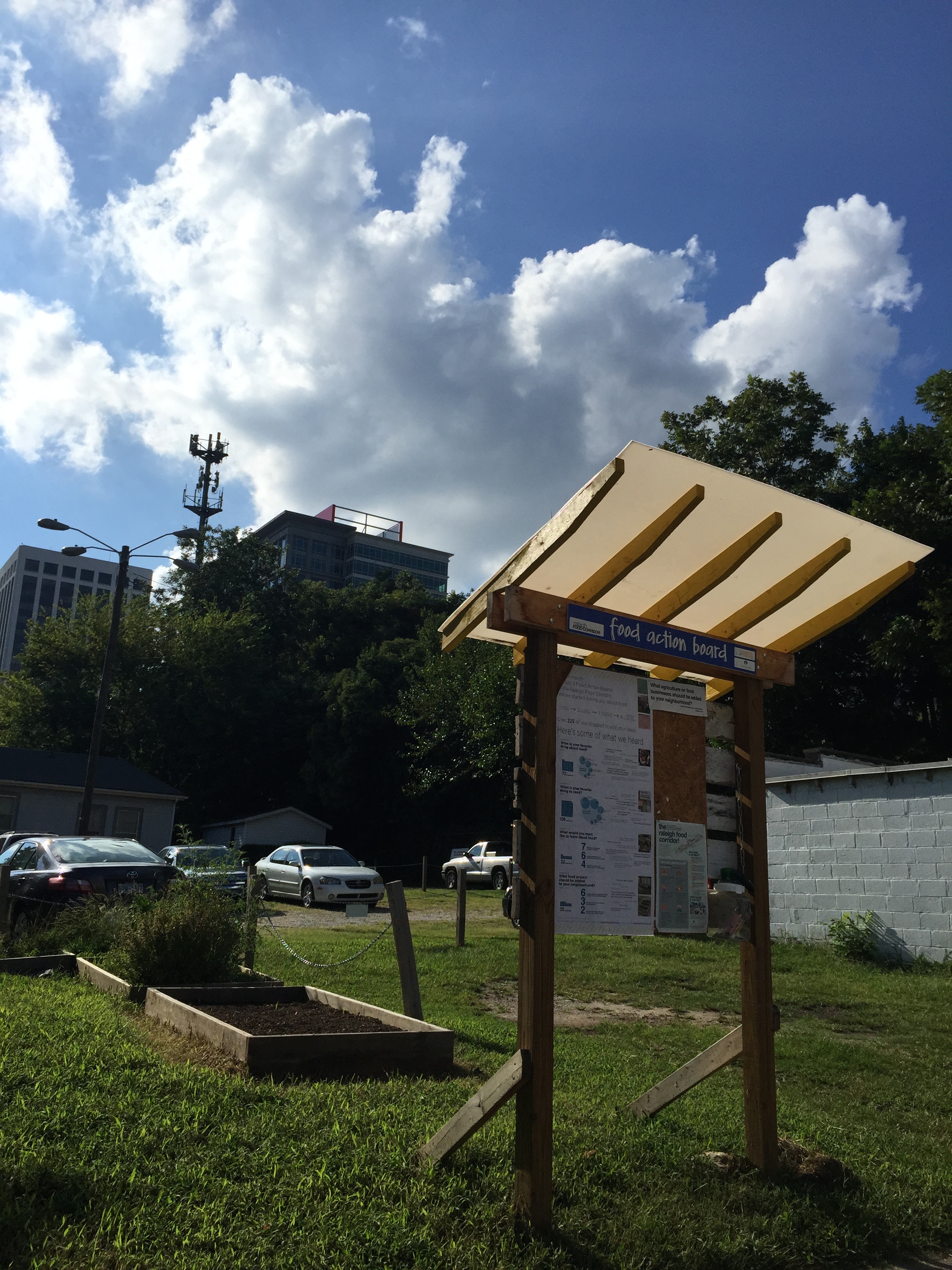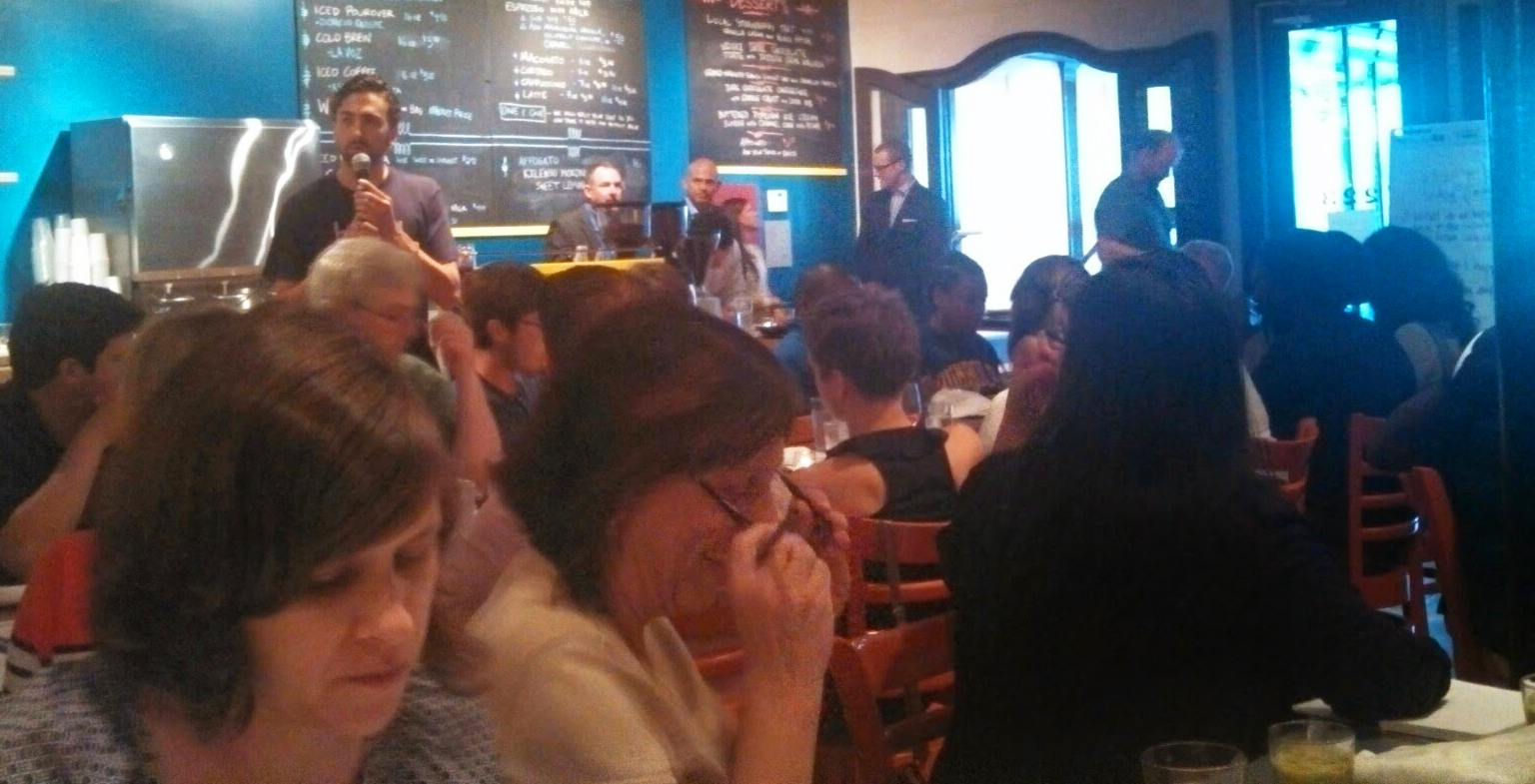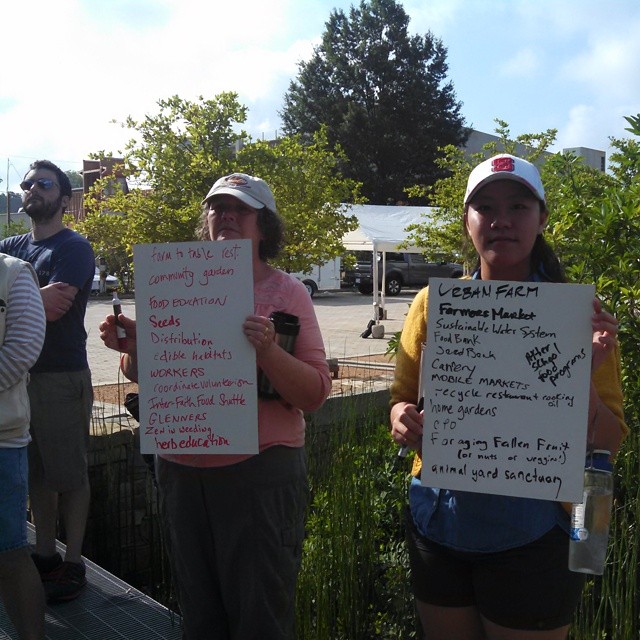Update Sept 2015: After completing a strategic planning process with a number of community partners and stakeholders, the Raleigh Food Corridor has continued to find clarity through community input and participation.
The mission of the Raleigh Food Corridor is to create healthy neighborhoods through gardens and other food projects. To achieve this, Community Food Lab envisions five interlinked networks that together move the urban food system forward: learning gardens, learning kitchens, composting, entrepreneurship, and art. Each network will find existing assets to build from, and new connections to mutually reinforce the system of food along the Corridor. The first true fundraising effort is beginning in the fall of 2015 to fund coordination, outreach, and the first steps in building these five networks.
A new project underway in Raleigh is the two-mile long Raleigh Food Corridor: a community-based project that links diverse communities through local food. Built from the ground up by food projects throughout the food system, the Corridor offers the benefits of local food to all the communities it connects.
Along with multiple partners, stakeholders, and like-minded organizations, Community Food Lab is working to create a shared vision for a vibrant local food corridor defined by its participants. Corridor can be imagined as a civic engagement project, a food justice initiative, and a catalyst for the local and regional food systems.
Since the middle of 2013, Community Food Lab has been developing and sharing a concept for the Corridor that relies on collaboration and engagement. Now, alongside new partners like the Jamie Kirk Hahn Foundation, Community Food Lab is helping support emerging events like Second Saturday (a day of food and community) and a recent Gathering for Good, a Hahn Foundation event series designed to increase engagement around issues of food, poverty, and education.
What’s the corridor?
This length of Blount and Person Streets is the right place in the city to start: successful urban agriculture projects anchor the north and south ends, Downtown's commercial core provides a built-in market for local food, plans for new bike lanes and pedestrian access are already in the works, and the Corridor's diverse communities are close enough to each other to profit together from the benefits of local food.
We see a food corridor as connective tissue in a city, linking diverse parts of the city around the shared economic, social, and ecological benefits of local food projects. By connecting the bold vision and common values of a top-down plan with the flexibility and responsiveness of grassroots energy and action, the Raleigh Food Corridor is designed for community impact and inclusive development. The space and shape of the Corridor will evolve over time, as the shared vision expands and shifts as diverse new projects emerge to meet neighborhood needs and shape new ideas.
For more information on the corridor, and to get involved, check out the website raleighfoodcorridor.org.
Recent press from the Indy Week, and a piece written by Advocates for Health in Action.
Why are we involved?
We’ve written before about our interest in bringing diverse people together through local food and about our interest in mapping Blount and Person Street food phenomena. Our involvement in this project lets us explore community food system innovation, builds our expertise in community engagement and public action, and allows us to develop replicable models for lasting change in urban food systems.


